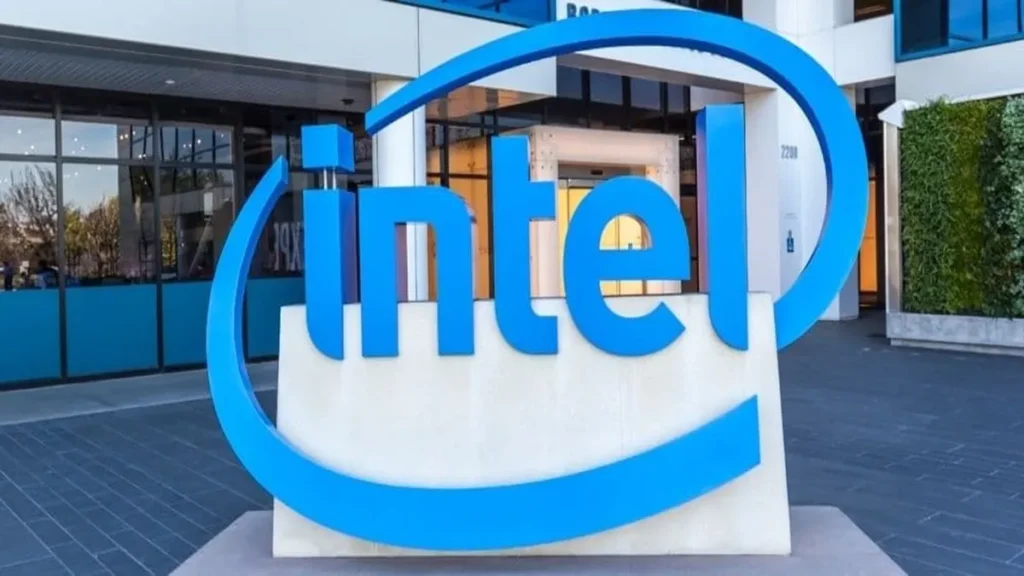Intel Hiring Graduate Engineer Trainee for Altera-IP Design Verification Lead Role

Job Details Summary
| Job Title | Altera-IP Design Verification Lead |
|---|---|
| Location | Bangalore, India |
| Department | Programmable Solutions Group (PSG) |
| Key Responsibilities | IP Logic Verification, Test Bench Development, Debugging |
| Minimum Qualification | Bachelor’s Degree in Engineering, 15+ years in verification |
| Special Requirements | UVM Expertise, Experience in VLSI, Leadership in DV |
| Preferred Qualifications | FPGA domain experience, MCDMA/DMA IP knowledge |
| Application Link | Apply Here |
Overview
Intel is actively recruiting for the role of Graduate Engineer Trainee with specialization in Altera-IP Design Verification. This position is an excellent opportunity for experienced candidates to join a leading global technology company, taking on a crucial role in the design verification process. Based in Bangalore, India, this opportunity allows professionals to contribute to Intel’s technological advancements within the Programmable Solutions Group (PSG).
Intel recently announced that, beginning January 1, 2024, PSG will operate as a separate business unit. The Design Verification Lead role is integral to this transition, aligning with Intel’s forward-thinking goals to establish PSG as a standalone company. Intel is offering the Altera-IP Design Verification Lead position to highly skilled professionals who excel in Functional Design Verification, System Simulation Models, and IP Logic Testing. The candidate will play a critical part in maintaining the quality and reliability of Intel’s IP logic through innovative verification practices.

Roles and Responsibilities
Functional Verification of IP Logic
In this role, the selected candidate will be responsible for performing comprehensive functional verification of IP logic, ensuring that the design specifications meet stringent quality standards. Functional verification plays a significant role in identifying issues in the design process at an early stage, making it essential for a successful product lifecycle.
Development of Verification Plans and Test Benches
A core responsibility includes developing IP verification plans and test benches to simulate the operation of IP blocks. By meticulously constructing test benches and designing verification plans, the engineer ensures thorough coverage and precision in testing IP modules against microarchitectural specifications.
Executing System Simulation Models
The system simulation models validate that the IP design aligns with the required specifications. Execution of simulation models helps confirm the functionality of IP, allowing the verification engineer to identify potential issues that may not appear under conventional testing conditions. This responsibility requires a solid understanding of system models and a comprehensive approach to testing.
Debugging and Root-Cause Analysis
One of the critical duties involves replicating issues and conducting root-cause analysis in the presilicon environment. By pinpointing the underlying cause of failing tests, the engineer can take corrective measures, refine the verification process, and contribute to the stability of IP designs. Debugging is essential for identifying architectural and microarchitectural issues, supporting the maintenance of Intel’s high standards.
Collaboration with Cross-Functional Teams
The role necessitates close collaboration with architects, RTL developers, and hardware verification teams. By working together, these teams can enhance the verification process, ensuring complex architectural and microarchitectural features operate as intended. This collaboration is vital to Intel’s success in developing industry-leading technology.
Maintenance and Improvement of Functional Verification Infrastructure
Intel prioritizes continuous improvement, and the successful candidate will contribute to the functional verification infrastructure by updating methodologies and implementing new strategies. This responsibility ensures that verification remains efficient, adaptable, and aligned with evolving industry standards.
Defining Verification Infrastructure
This responsibility includes defining the verification infrastructure and Test Frameworks (TFMs) needed for accurate functional design verification. By implementing robust frameworks, Intel ensures a solid foundation for thorough testing, reducing the likelihood of design errors and enhancing product reliability.
Building and Leading a Team of Verification Engineers
For experienced candidates, the role also involves building and leading a team of verification engineers. This includes assigning tasks, overseeing progress, and ensuring that team goals align with Intel’s verification objectives. Strong leadership skills and experience in team management are essential for this part of the role.
Qualifications and Skills Required
Minimum Qualifications
Intel seeks candidates with the following minimum qualifications to excel in the Design Verification Lead role:
- Bachelor’s Degree in Engineering with a minimum of 15 years of experience in front-end verification.
- DV Lead experience specifically for MCDMA IP, demonstrating expertise in managing the verification process.
- Proficiency in UVM (Universal Verification Methodology), a critical skill for verification engineers working with complex IP logic and hardware simulations.
- Specialization in VLSI (Very-Large-Scale Integration) or IC design, providing in-depth knowledge required for advanced hardware design and verification.
- Prior Experience in IP Verification, a prerequisite that reflects the candidate’s capability in handling complex verification scenarios.
- Leadership Experience in a verification role, with a history of driving teams to meet verification goals effectively.
Preferred Qualifications
While not mandatory, the following skills and experiences are advantageous:
- MCDMA/DMA IP Knowledge, which can streamline the verification process and contribute to a deeper understanding of IP design challenges.
- Experience in FPGA (Field-Programmable Gate Array) Domain Verification, allowing for specialized insights into programmable logic devices, which are key to Intel’s PSG objectives.
Career Advancement and Future Prospects
Intel is positioning the Programmable Solutions Group (PSG) as a standalone entity within its corporate structure. This move marks an exciting opportunity for professionals joining the team, as PSG will evolve under a dedicated business strategy, aimed at enhancing Intel’s market presence in programmable technology. For professionals in design verification, this development signifies potential career growth, involvement in impactful projects, and the chance to work at the forefront of programmable solutions.
The Altera-IP Design Verification Lead will play a significant role in PSG’s transition, making this position ideal for candidates interested in taking on a strategic, leadership-oriented role. As PSG moves toward greater autonomy, verification engineers within the group will find ample opportunities to drive advancements in IP verification standards, develop skills, and influence Intel’s trajectory in the programmable technology space.
Why Choose Intel for Your Career in Design Verification?
Intel provides a robust platform for professionals to excel in design verification, with ample resources, industry-leading methodologies, and cutting-edge tools. Working at Intel means joining a team committed to innovation, continuous learning, and the pursuit of excellence. By focusing on the latest trends and requirements in programmable technology, Intel offers design verification engineers the opportunity to work on high-impact projects that define future technology landscapes.
Intel’s supportive environment for professional growth encourages engineers to take ownership of their roles, work collaboratively, and bring innovative ideas to fruition. The Design Verification Lead role offers an ideal platform for driven individuals to leave a lasting impact in the technology field while achieving significant professional milestones.
Application Process
If you meet the qualifications outlined above and are excited by the opportunity to contribute to Intel’s Programmable Solutions Group, we encourage you to apply. The application process is simple:
- Prepare Your Resume and Cover Letter: Highlight your experience in design verification, UVM expertise, and relevant leadership roles.
- Complete the Online Application: Submit your application on Intel’s official Careers Portal.
- Follow Intel’s Interview Process: Expect a series of interviews focusing on your technical expertise, experience in design verification, and leadership capabilities.
Interested candidates may apply for this position by following this link: https://jobs.intel.com/en/job/bengaluru/altera-ip-design-verification-lead/41147/71816848304
Frequently Asked Questions (FAQ)
1. What is the role of an Altera-IP Design Verification Lead?
The Altera-IP Design Verification Lead is responsible for verifying IP logic designs to ensure they meet design requirements, developing test benches, debugging issues, and collaborating with other teams to enhance verification quality.
2. What qualifications are required for this position?
A Bachelor’s degree in Engineering with at least 15 years in front-end verification, experience in DV for MCDMA IP, and expertise in UVM are required. Additional experience in FPGA domain verification and knowledge of MCDMA/DMA IP are advantageous.
3. Does Intel provide growth opportunities within this role?
Yes, Intel offers numerous growth opportunities within the Programmable Solutions Group (PSG). As PSG transitions into a standalone unit, verification engineers have the potential for career advancement and involvement in significant projects.
4. Is experience in UVM essential for this role?
Yes, proficiency in Universal Verification Methodology (UVM) is critical for this role, as it is integral to the design verification process within Intel’s engineering infrastructure.
5. How does this role contribute to Intel’s PSG transition?
This position supports PSG’s transition as a standalone unit by ensuring that design verifications align with the new business structure, which enhances Intel’s technological advancements and market presence.
6. How can I apply for this role?
To apply, candidates can prepare their resume and cover letter highlighting relevant experience and submit it through Intel’s official Careers Portal.
7. Is leadership experience mandatory?
Yes, candidates are expected to have prior leadership experience in a verification role, as the position involves building and leading a team of verification engineers.
Career Advancement and Future Prospects
Intel’s focus on PSG’s autonomy offers extensive opportunities for career growth, with ample resources and the ability to work on projects defining future technology. The Design Verification Lead role is ideal for ambitious professionals aiming to contribute to cutting-edge technology while achieving significant career milestones.
